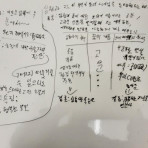Japan to assist 4 ASEAN countries to counter China: report
본문
Thu, 15 Feb 2024 01:38:00 -0500

The Japan International Cooperation Agency is preparing a 10-year maritime security support plan for four ASEAN nations – Indonesia, Malaysia, the Philippines and Vietnam – to boost security in the South China Sea, according to a media report.
The four countries are regarded as Tokyo’s top priorities in terms of security, public broadcaster NHK said, adding that the move is designed to counter China's growing assertiveness in the disputed waters in the region.
The agency, known as JICA, is expected to unveil a detailed plan by March, 2025.
The support plan will see Japan providing drones, radar systems and patrol boats, as well as other capacity building measures to each of the four countries, according to NHK.
Japanese officials and specialists are believed to have conducted studies and on-site surveys last month in the Philippines and Indonesia. They are scheduled for April in Malaysia and Vietnam.
A JICA delegation led by Director General Hiroo Tanaka visited Manila in January to identify maritime security cooperation projects in the country.
During the visit of Japanese Prime Minister Fumio Kishida to the Philippines in November last year, Manila and Tokyo signed an agreement on Japan’s grant of coastal surveillance radars to the Philippines worth 600 million yen (US$4 million).
Japan’s ASEAN partners
“Japan will continue to invest in helping build capacities in Southeast Asian countries through the provision of vessels, capabilities and training,” Stephen Nagy, professor at the International Christian University (ICU) in Tokyo, told Radio Free Asia.
“Expect more in the future as Japan's defense oriented self-defense approach and focus on the U.S.- Japan alliance means that Tokyo thinks it’s better to enhance the capabilities of each Southeast Asian states individually so they can have a stronger position in the South China Sea,” said Nagy, who also serves as the director of policy studies at the Yokosuka Council of Asia Pacific Studies.
Japanese Prime Minister Fumio Kishida delivers a speech at the gala dinner for the 50th anniversary event between ASEAN and Japan in Tokyo on December 17, 2023. (Yoshikazu Tsuo/Pool via Reuters)
In December 2023, ASEAN and Japan held a special summit to commemorate 50 years of friendship and bilateral cooperation. A major part of the event was dedicated to cooperation in maritime security.
On the sidelines of the summit, Kishida and his Malaysian counterpart Anwar Ibrahim signed a security assistance agreement worth 400 million yen (US$2.6 million) through which Tokyo will provide maritime equipment and rescue boats to Kuala Lumpur.
Malaysia-Japan bilateral relations were also upgraded to Comprehensive Strategic Partnership, the highest level of cooperation.
Separately, Japan and Indonesia also signed notes for the provision of a large Japan-built patrol vessel of up to 9.05 billion yen ($60.2 million) for the Indonesian Coast Guard .
Japan and Vietnam also elevated their bilateral relationship to a Comprehensive Strategic Partnership last year. Before that, in 2020, Tokyo agreed to a US$348 million loan agreement for Vietnam to build six maritime patrol vessels.
“Japan, who is by far the most trusted partner of many ASEAN member states, is stepping up in playing a security role in the region,” said Huong Le Thu, Asia deputy director at the International Crisis Group .
Japan has territorial disputes with China over the sovereignty of the Senkaku islands – known as Diaoyu by the Chinese – in the East China Sea.
China and four ASEAN countries – Brunei, Malaysia, the Philippines and Vietnam – hold contesting claims over parts of the South China Sea, but Beijing’s claim is by far the most expansive.
A U.N. tribunal in 2016 ruled against most of China’s claims in the South China Sea, but Beijing refused to accept the verdict.
Edited by Mike Firn and Elaine Chan.

The Japan International Cooperation Agency is preparing a 10-year maritime security support plan for four ASEAN nations – Indonesia, Malaysia, the Philippines and Vietnam – to boost security in the South China Sea, according to a media report.
The four countries are regarded as Tokyo’s top priorities in terms of security, public broadcaster NHK said, adding that the move is designed to counter China's growing assertiveness in the disputed waters in the region.
The agency, known as JICA, is expected to unveil a detailed plan by March, 2025.
The support plan will see Japan providing drones, radar systems and patrol boats, as well as other capacity building measures to each of the four countries, according to NHK.
Japanese officials and specialists are believed to have conducted studies and on-site surveys last month in the Philippines and Indonesia. They are scheduled for April in Malaysia and Vietnam.
A JICA delegation led by Director General Hiroo Tanaka visited Manila in January to identify maritime security cooperation projects in the country.
During the visit of Japanese Prime Minister Fumio Kishida to the Philippines in November last year, Manila and Tokyo signed an agreement on Japan’s grant of coastal surveillance radars to the Philippines worth 600 million yen (US$4 million).
Japan’s ASEAN partners
“Japan will continue to invest in helping build capacities in Southeast Asian countries through the provision of vessels, capabilities and training,” Stephen Nagy, professor at the International Christian University (ICU) in Tokyo, told Radio Free Asia.
“Expect more in the future as Japan's defense oriented self-defense approach and focus on the U.S.- Japan alliance means that Tokyo thinks it’s better to enhance the capabilities of each Southeast Asian states individually so they can have a stronger position in the South China Sea,” said Nagy, who also serves as the director of policy studies at the Yokosuka Council of Asia Pacific Studies.
Japanese Prime Minister Fumio Kishida delivers a speech at the gala dinner for the 50th anniversary event between ASEAN and Japan in Tokyo on December 17, 2023. (Yoshikazu Tsuo/Pool via Reuters)
In December 2023, ASEAN and Japan held a special summit to commemorate 50 years of friendship and bilateral cooperation. A major part of the event was dedicated to cooperation in maritime security.
On the sidelines of the summit, Kishida and his Malaysian counterpart Anwar Ibrahim signed a security assistance agreement worth 400 million yen (US$2.6 million) through which Tokyo will provide maritime equipment and rescue boats to Kuala Lumpur.
Malaysia-Japan bilateral relations were also upgraded to Comprehensive Strategic Partnership, the highest level of cooperation.
Separately, Japan and Indonesia also signed notes for the provision of a large Japan-built patrol vessel of up to 9.05 billion yen ($60.2 million) for the Indonesian Coast Guard .
Japan and Vietnam also elevated their bilateral relationship to a Comprehensive Strategic Partnership last year. Before that, in 2020, Tokyo agreed to a US$348 million loan agreement for Vietnam to build six maritime patrol vessels.
“Japan, who is by far the most trusted partner of many ASEAN member states, is stepping up in playing a security role in the region,” said Huong Le Thu, Asia deputy director at the International Crisis Group .
Japan has territorial disputes with China over the sovereignty of the Senkaku islands – known as Diaoyu by the Chinese – in the East China Sea.
China and four ASEAN countries – Brunei, Malaysia, the Philippines and Vietnam – hold contesting claims over parts of the South China Sea, but Beijing’s claim is by far the most expansive.
A U.N. tribunal in 2016 ruled against most of China’s claims in the South China Sea, but Beijing refused to accept the verdict.
Edited by Mike Firn and Elaine Chan.
좋아요3
이 글을 좋아요하셨습니다
관련링크
등록된 댓글이 없습니다.





































